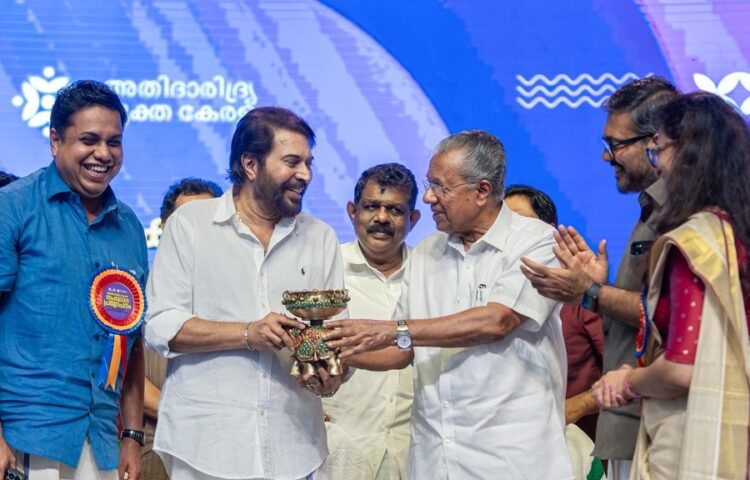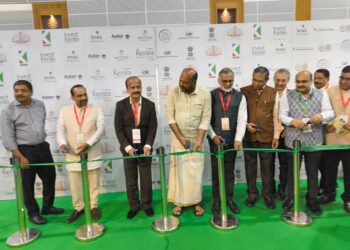Milestone Achievement Recognized After Comprehensive Statewide Survey and Welfare Interventions
Kerala has been officially declared as the first state in India to eradicate extreme poverty, following the successful completion of a multi-stage verification survey led by the State Government in collaboration with local self-government bodies and social welfare departments. The announcement marks a historic milestone in India’s social development landscape.
The Path to Eradication
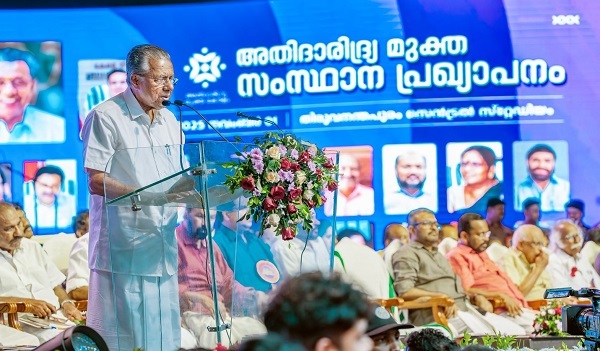

Chief Minister Pinarayi Vijayan emphasized that this success is a testament to Kerala’s long-standing dedication to social equity, inclusive growth, and welfare-oriented governance. The declaration came after an intensive, months-long field verification process aimed at identifying, supporting, and rehabilitating households previously classified under extreme poverty—a status determined by factors like economic hardship, lack of secure housing, poor health conditions, and limited access to essential social services.
A comprehensive master database was compiled through the Nava Kerala Mission, involving the coordinated efforts of local self-government bodies, the Kudumbashree community network, and social justice missions. Families on the extreme poverty list were steadily moved toward stable living conditions through specialized interventions. These included:
Providing secure housing.
Offering free medical care and health mission support.
Direct financial assistance.
Ensuring food security and livelihood assistance.
Specific welfare support for old-age care and disability.
A Model of People-Centric Governance
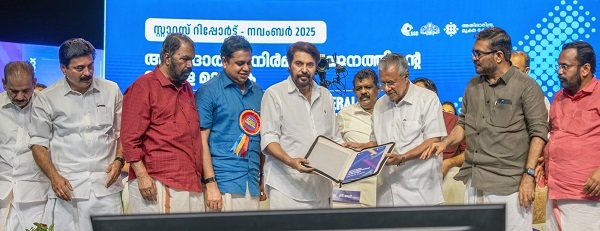

The Chief Minister highlighted that the achievement is more than just a statistic; it signifies the restored dignity and security of thousands of families. He stated, “Kerala’s model demonstrates that with people-centric governance and robust welfare systems, poverty eradication is an achievable goal, not just a distant dream.”
Key Factors Enabling the Transformation
The success was driven by a combination of strong public systems and decentralized action:
Comprehensive Surveys: Detailed, household-level surveys executed by local administrative bodies.
Community Mobilization: Outreach to vulnerable families via the Kudumbashree network.
Health and Education: Universal access to quality public education and healthcare, including free treatment schemes under state health missions.
Economic Support: Provision of livelihood assistance through microenterprises and social security pensions.
Setting a National Example
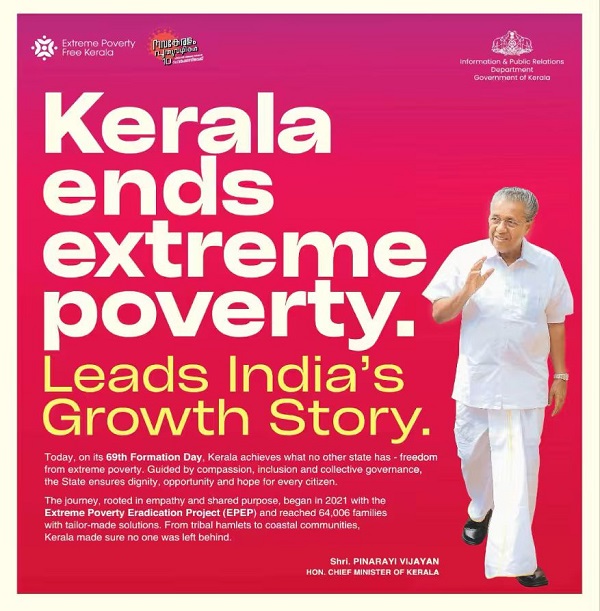

Kerala has historically been a national frontrunner in social indicators, consistently leading indices for literacy, healthcare, human development, and social progress. The state was the first to achieve 100% literacy and subsequently attained near-universal school enrollment and primary healthcare access.Social policy experts and economists have praised Kerala’s unique model, viewing it as a clear example of how strong public systems and decentralized governance can significantly reduce inequality, even when facing broader economic challenges.
Celebrating this milestone on Kerala Piravi (the state formation day), Chief Minister Vijayan proudly announced that 64,006 families have found new hope and dignity. With this declaration, the state positions itself as a national blueprint for effective poverty eradication strategies and plans to share its methodologies with other states through policy dialogues.


